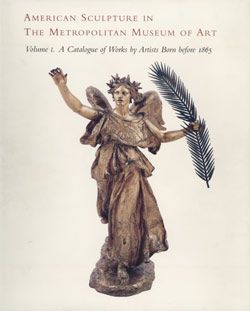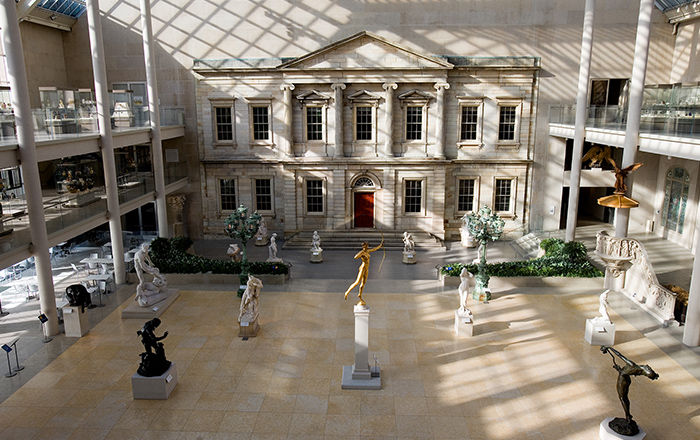Aqua Viva
Frank Edwin Elwell American
Elwell modeled "Aqua Viva" in Paris under the guidance of Alexandre Falguière, his teacher at the Ecole de Beaux-Arts. This unique bronze was cast two years later in Brussels, presumably while Elwell was studying architecture in Ghent. The sculpture was first exhibited in the Paris Salon of 1885 under the more descriptive title: "Aqua Viva: Porteur d'eau de Pompei [sic]." It depicts a youth peddling water in the streets of ancient Pompeii; the title, Aqua Viva, refers to his call: “Fresh water!” Although Elwell did not consider this work characteristic of any particular school, "Aqua Viva" reflects the sculptor's Parisian training in style and choice of subject. The surface of the bronze has a textural quality typical of late-nineteenth century Beaux-Arts sculpture. The selection of theme was no doubt a product of the widespread fascination with Pompeian culture manifested in artworks by the likes of Jean-Léon Gérôme and Sir Lawrence Alma-Tadema.
Due to rights restrictions, this image cannot be enlarged, viewed at full screen, or downloaded.


